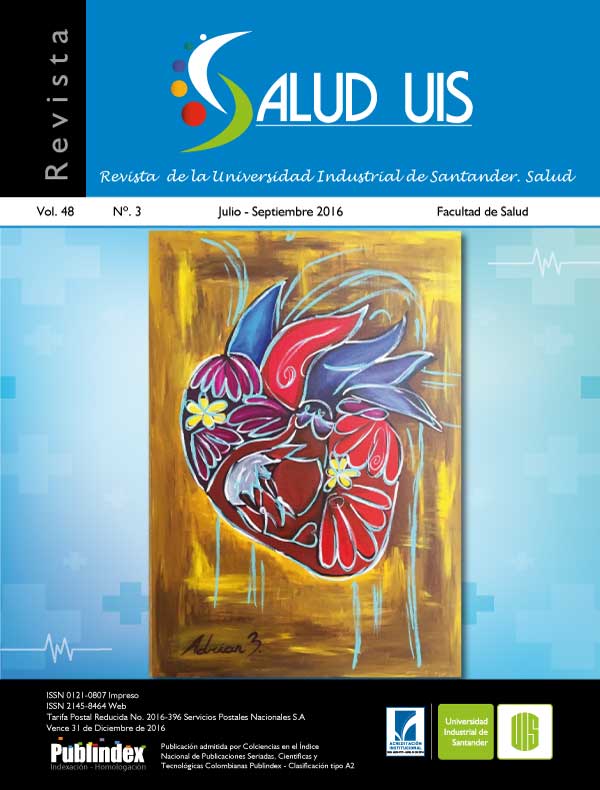Abstract
Introduction: Disability is a very complex issue of great social an economic impact. One of the most devastating disabilities is visual impairment, as it leads to serious psychosocial effects, especially in the cases of children, affecting the quality of life for them and their families. When there is a child with visual disability, it can produce similar effects as mourning felt after the loss of a dear relative. There are few studies related to the parents experiences of children with visual impairment. Objective: To document the experiences and feelings of parents with visually impaired children. Methodology: Qualitative study. The methodology used was the interpretative phenomenology. The sample was made of seven participants, six women and one man, the primary caregivers of children diagnosed with blindness, enrolled at the Institute for Blind and Deaf Children of Valle del Cauca, who were interviewed in depth 3 times. Results: Participants experienced multiple challenges, from an unexpected pregnancy, the childs hospitalization, the devastating news of the diagnosis, the process of accepting and living with visual disabilities of their children; to these challenges participants experienced anger, sadness, fear, guilt, shame uncertainty Conclusion: Visual impairment is a burden both the children and their families and is a complex issue that must be addressed from interdisciplinary teams. For nurses is a challenge, because care must focus on helping the blind child to use the most of their functional residual capacity. The main objective is to support the child and his family to live an adaptation process to the visually impaired as smooth as possible.Se autoriza la reproducción total o parcial de la obra para fines educativos, siempre y cuando se cite la fuente.
Esta obra está bajo una Licencia Creative Commons Atribución 4.0 Pública Internacional.
Downloads
Download data is not yet available.
